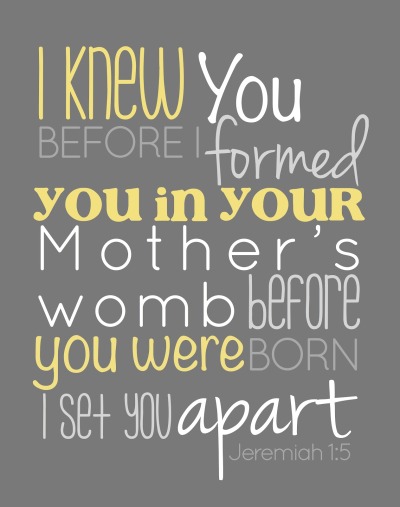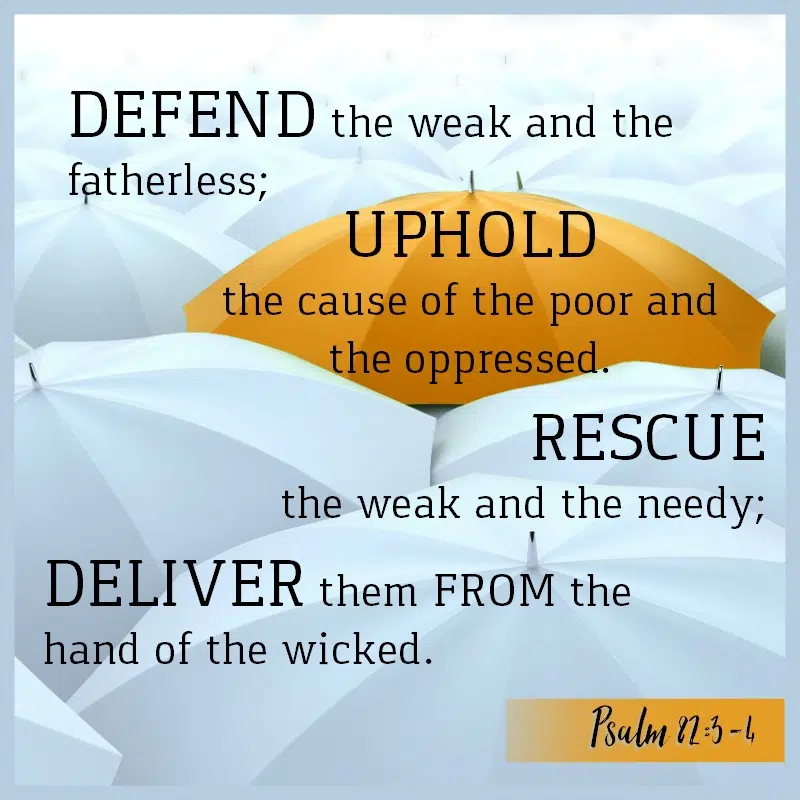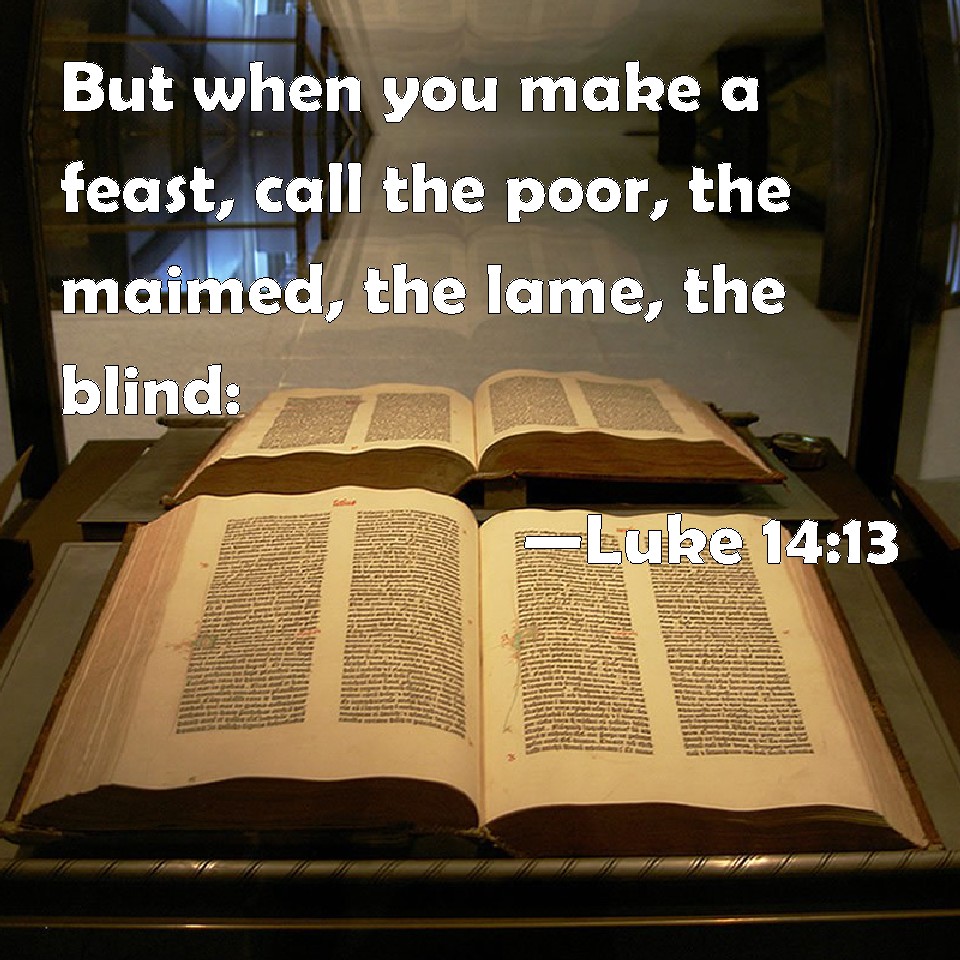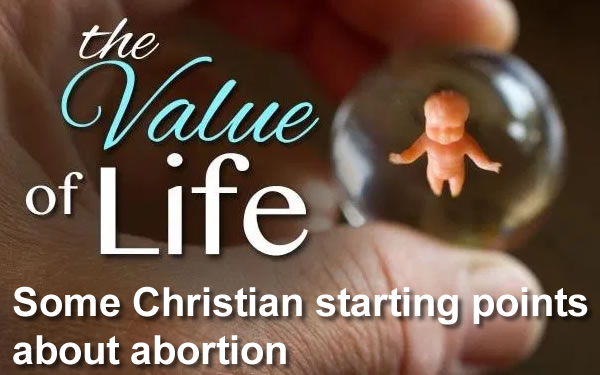There is no mention of abortion in the Bible, but there are many biblical passages and principles that we should take into account.
The Bible…
points to the great value of human beings, created by God
(Ps.100:3 – “it is He who has made us, and not we ourselves”; Isa.64:8 – “We are the clay, you are the potter; we are all the work of your hand”), made in God’s image (Gen.1:27a), breathed life by God (Gen. 2:7), crowned by God with honour and glory (Ps. 8:5), and greatly loved by God (e.g. John 3:16)
is very positive about human procreation
(Gen. 1:28; Ps. 127:3)
speaks reverentially of God beautifully forming us in the womb, and seeing and knowing us before birth
13 For you created my inmost being;
you knit me together in my mother’s womb.
14 I praise you because I am fearfully and wonderfully made;
your works are wonderful,
I know that full well.
15 My frame was not hidden from you
when I was made in the secret place,
when I was woven together in the depths of the earth.
16 Your eyes saw my unformed body;
all the days ordained for me were written in your book
before one of them came to be.[
tells of God calling people before they were born
(Jer. 1:5; Gal.1:15)

does not address the issue whether life begins at conception or at birth, but does recognise the obvious continuity between the life that is conceived and the baby that is born
speaks warmly of unborn lives in the womb, in relation to both Jesus and John
(Luke 1:39-45)
in the Mosaic law, in one instance places a greater value upon the life of a mother than that of her unborn child (Ex. 21:22-25)
22 “Now suppose two men are fighting, and in the process they accidentally strike a pregnant woman so she gives birth prematurely. If no further injury results, the man who struck the woman must pay the amount of compensation the woman’s husband demands and the judges approve. 23 But if there is further injury, the punishment must match the injury: a life for a life, 24 an eye for an eye, a tooth for a tooth, a hand for a hand, a foot for a foot, 25 a burn for a burn, a wound for a wound, a bruise for a bruise.
recounts Jesus’ welcome to children and his warning against causing them harm
(Matt. 18:5-6)
speaks often of God’s love for the weak and defenceless
(e.g. Ps. 32:13, 82:3-4)

shows God’s love for the disabled
(e.g. Ex. 4:11, Matt. 15:31, Lk. 14:13)

declares God’s love for the broken-hearted
(Ps. 34:18)

declares God’s grace and forgiveness for those who have done wrong
(e.g. Isa. 1:18, 43:25; Ps.103:12; 1 John 1:9)












0 Comments